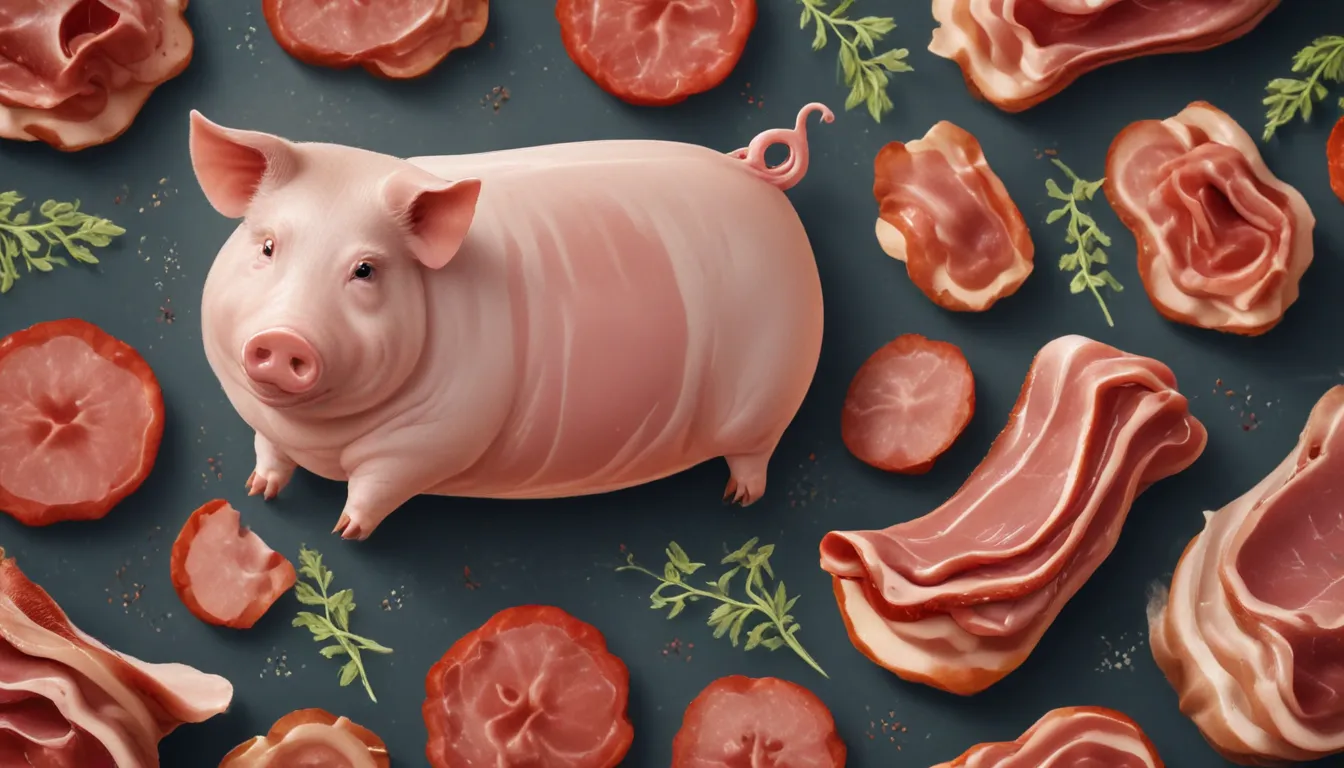The pictures in our articles might not always show exactly what the text is talking about. We use these images to make the article more interesting and eye-catching. They are there to add to the text, but not to replace it or show every detail.
If you're a fan of the crispy, savory goodness of pork bacon, you're not alone. This popular food is a staple in many households, adding a delicious touch to a variety of dishes. But have you ever wondered about the nutritional content of pork bacon? In this article, we'll explore the essential facts you need to know about pork bacon nutrition. Whether you're a bacon enthusiast looking to make informed choices or simply curious about the health implications of enjoying this tasty treat, read on to discover the nutritional profile of pork bacon.
Key Nutrition Facts
- Protein: Pork bacon is a rich source of protein, with approximately 3 grams per slice. Protein is vital for building and repairing tissues, supporting muscle growth, and overall health.
- Fat: Pork bacon is known for its high fat content, primarily in the form of saturated fat, containing around 3 grams per slice.
- B Vitamins: Pork bacon is packed with essential B vitamins, including thiamine, niacin, and vitamin B. These vitamins play a crucial role in energy production, brain function, and red blood cell formation.
- Minerals: Pork bacon provides essential minerals like iron, zinc, and selenium. Iron aids in oxygen transport, while zinc and selenium support immune function and overall well-being.
- Sodium: Pork bacon is high in sodium, which can lead to health issues like high blood pressure if consumed excessively.
- Nitrites: Pork bacon often contains nitrites, used to preserve its color and flavor. While helpful in preventing bacterial growth, excessive intake may pose health risks.
- Calories: Each slice of pork bacon contains around 40-50 calories, making portion control crucial for managing calorie intake.
- Cholesterol Levels: Regular consumption of pork bacon, high in fat, may increase LDL cholesterol levels and contribute to heart disease.
- Versatility: Pork bacon is a versatile ingredient that adds delicious flavor to a variety of dishes, from breakfast classics to salads and sandwiches.
Incorporating Pork Bacon in a Balanced Diet
While pork bacon offers nutritional benefits like protein and essential vitamins and minerals, it's crucial to enjoy it in moderation due to its high fat, sodium, and calorie content. Here are some tips for incorporating pork bacon into a balanced diet:
- Moderation: Enjoy pork bacon in moderation to avoid consuming excess fat, sodium, and calories.
- Leaner Cuts: Choose leaner cuts of bacon to reduce overall fat content.
- Cooking Methods: Opt for cooking methods that reduce fat content, such as baking or grilling rather than frying.
- Balanced Meals: Pair pork bacon with nutrient-dense foods like fruits, vegetables, whole grains, and lean proteins for a well-rounded diet.
- Lower-Sodium Options: Consider lower-sodium bacon alternatives or enjoy bacon in smaller portions if you're watching your sodium intake.
Conclusion: Enjoying Pork Bacon Responsibly
In conclusion, pork bacon is a delicious food choice with a range of nutritional benefits, including protein, B vitamins, and essential minerals. However, it's essential to consume it in moderation to avoid potential health risks associated with its high fat, sodium, and calorie content. By balancing your bacon consumption with nutrient-dense foods and opting for leaner cuts and healthier cooking methods, you can savor the flavor of bacon while maintaining a balanced and healthy diet.
FAQs
Q: Is pork bacon healthy?
A: While tasty, pork bacon is high in saturated fat, sodium, and calories, so it should be enjoyed in moderation.
Q: Can I include bacon in a balanced diet?
A: Yes, you can include bacon in a balanced diet by moderating your consumption and choosing leaner cuts and healthier cooking methods.
Q: How can I make bacon healthier?
A: To make bacon healthier, choose leaner cuts, trim excess fat, and opt for healthier cooking methods like baking or grilling.
Q: Are there alternatives to pork bacon?
A: Yes, alternatives like turkey bacon or veggie bacon may be lower in fat and calories, but ensure to read labels and choose options that align with your dietary preferences.
Q: Can I eat bacon if I'm watching my sodium intake?
A: If you're monitoring your sodium intake, be mindful of the salt content in bacon and choose lower-sodium options or smaller portions.
In conclusion, pork bacon can be a part of a balanced diet when enjoyed responsibly. Remember to savor the deliciousness of bacon in moderation and pair it with nutrient-rich foods for overall good health. Enjoy!






